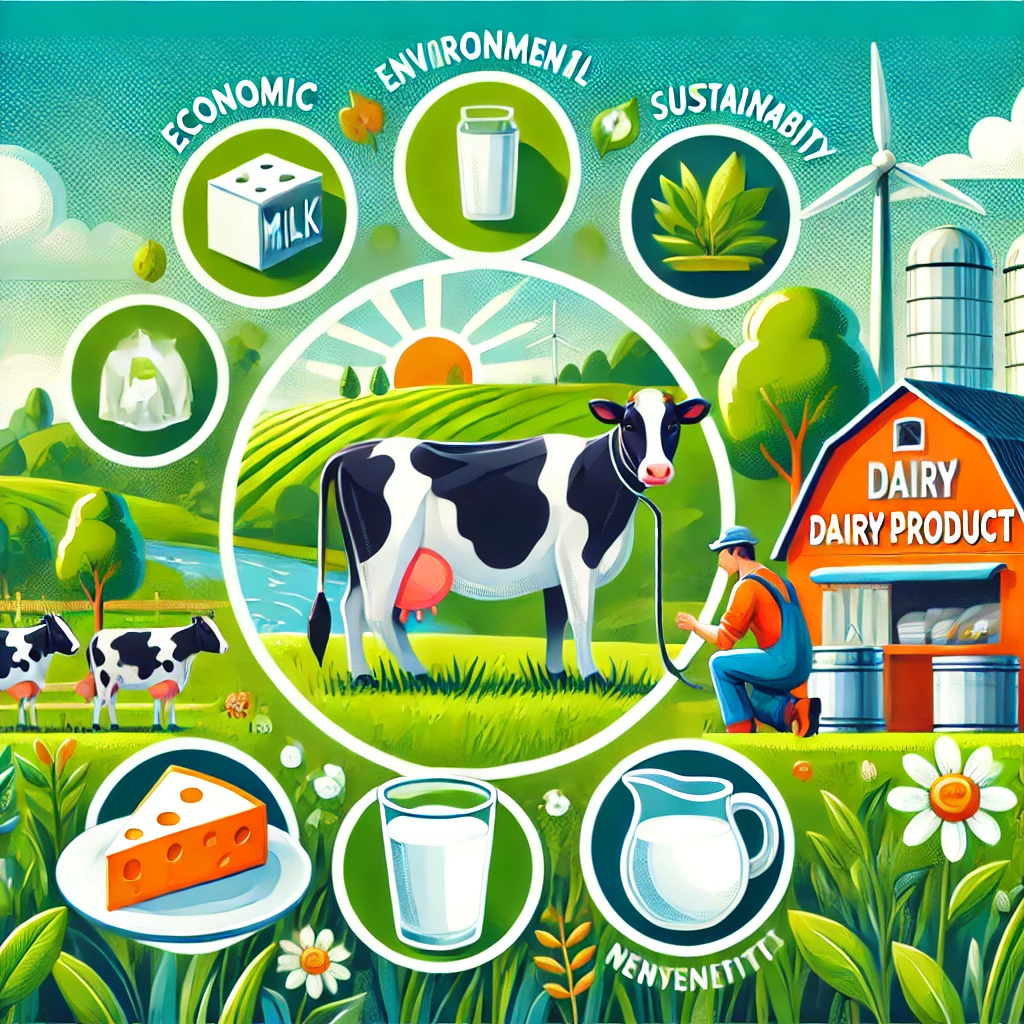257
Dairy farming offers a wide range of benefits that contribute to economic growth, food security, and sustainable agriculture. Here are some of the primary benefits:
1. Economic Benefits
- Income Generation: Dairy farming provides a steady source of income for farmers through the sale of milk, milk products, and by-products like manure.
- Employment Opportunities: It creates jobs in rural and urban areas in various sectors such as farming, processing, packaging, transportation, and retail.
- Value Addition: Dairy farming enables farmers to add value to raw milk by producing products like cheese, yogurt, butter, and cream, which fetch higher market prices.
2. Food Security
- Nutritional Value: Dairy products are rich in essential nutrients like calcium, protein, vitamins, and minerals, supporting healthy diets.
- Reliable Food Source: Milk production is a consistent process, ensuring a regular supply of dairy products even during off-seasons for crops.
3. Sustainable Agriculture
- Resource Utilization: Dairy farming makes effective use of resources like crop residues and by-products, which are converted into valuable milk.
- Organic Fertilizer Production: Cow manure can be used as organic fertilizer, improving soil fertility and reducing reliance on chemical inputs.
- Biogas Production: Manure can also be used to generate biogas, a renewable source of energy for cooking and electricity.
4. Livelihood Enhancement
- Empowerment of Marginalized Groups: Dairy farming often involves women, contributing to gender equality and the economic empowerment of rural women.
- Risk Diversification: It provides an additional income stream, helping farmers mitigate risks associated with crop failures.
5. Environmental Benefits
- Carbon Sequestration: Well-managed grazing systems can help capture carbon, reducing greenhouse gas emissions.
- Waste Recycling: Dairy farms contribute to sustainable waste management by recycling organic waste into useful products like compost and energy.
6. Rural Development
- Infrastructure Development: The demand for dairy products leads to the development of infrastructure such as roads, cold storage facilities, and markets in rural areas.
- Community Support: Cooperatives and dairy groups foster community development and collective bargaining, ensuring better prices for farmers.
7. Educational and Technological Advancements
- Skill Development: Dairy farming requires knowledge and training in animal husbandry, feeding practices, and disease management, which enhance the skills of farmers.
- Innovation Encouragement: Modern dairy farming encourages the adoption of advanced technologies like automated milking systems, which boost productivity and efficiency.
By combining economic, social, and environmental advantages, dairy farming plays a vital role in enhancing livelihoods, supporting economies, and promoting sustainable agricultural practices.
4o

